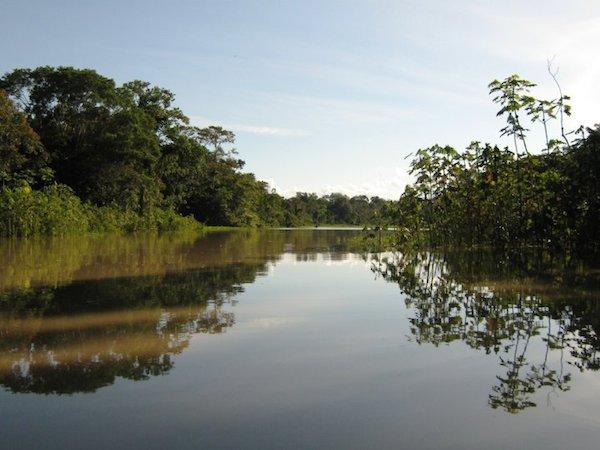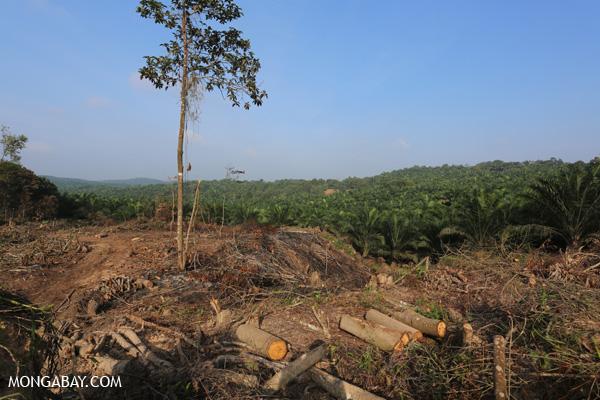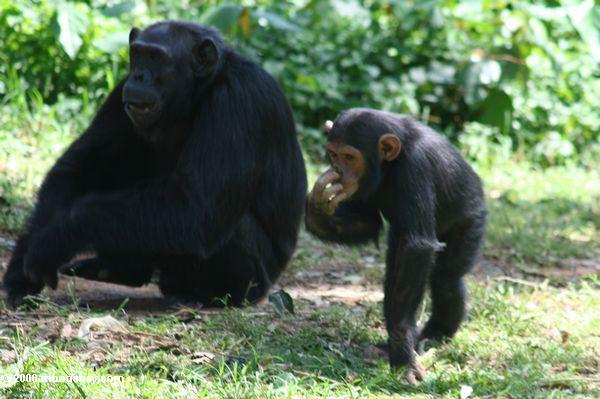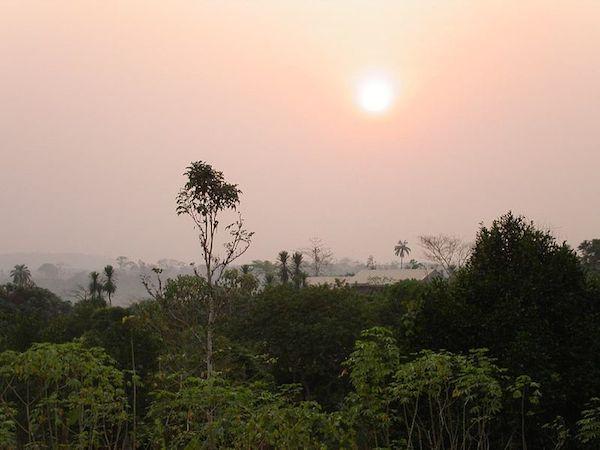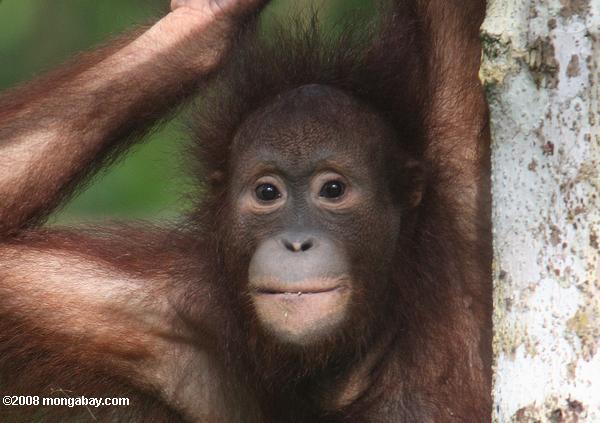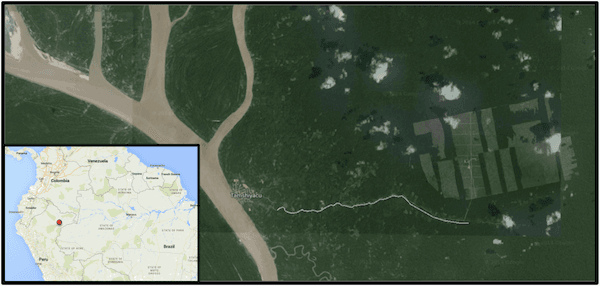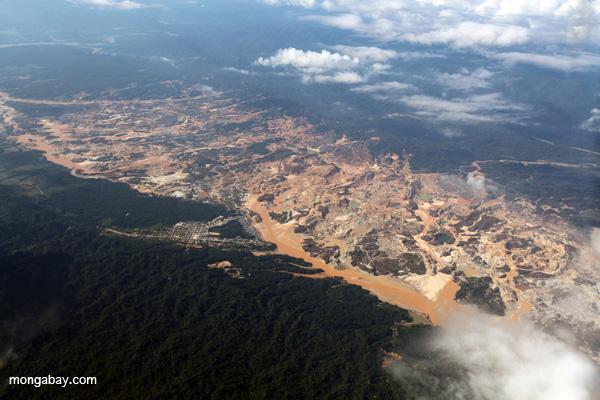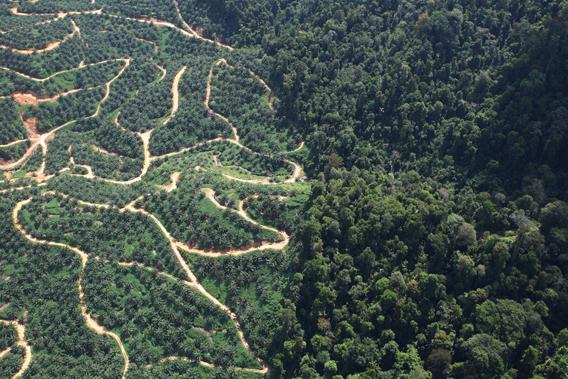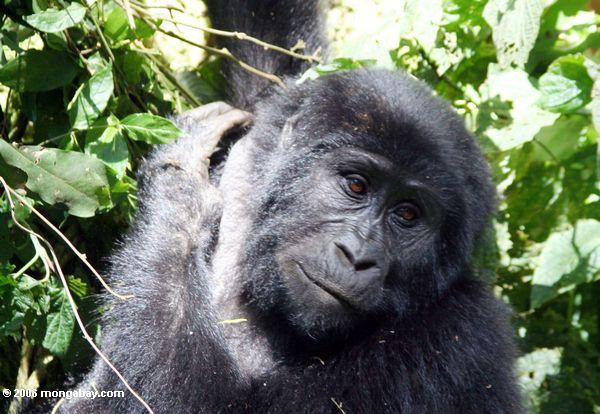John C. Cannon
Author
CONTACT ME
Website: news.mongabay.com
LATEST
Deforestation for Chocolate Legal in Peru
A regional court in Loreto, Peru recently ruled that the clearing of more than 2,000 hectares of forest by Cacao del Peru Norte for a plantation to grow cacao, the raw material behind chocolate, was legal, reported the investigative news site OjoPúblico on April 9.
|
Liberia Locals May Lose Land Rights To Palm Oil Industry
The rights of local and indigenous peoples aren’t being adequately protected in the drive for economic development, according to a report published in February by the Rights and Resources Initiative (RRI), a coalition of forest-oriented organizations. For a place like Liberia, reeling from both decades of persistent poverty and the recent Ebola epidemic that’s estimated, according to the World Bank, to have chipped hundreds of millions of dollars from the region’s economies (if not more), economic development seems critical at just about any cost.
|
Scientists Sound the Alarm on African Palm Oil Investment
Africa’s people, forests and wildlife are in trouble if the mostly unbridled expansion of oil palm in West and Central Africa is allowed to continue unchecked, says an organization of African scientists.
|
Illegal Logging Still a Struggle in Cameroon
Cameroon is struggling to make progress in combatting illegal logging. Regulatory budgets are too thin to protect the country’s vast tracts of Congolian Rainforest.
|
Half of Borneo’s Mammals Could Lose a Third of their Habitat by 2080
Borneo consistently makes the list of the world’s “biodiversity hotspots” – areas full of a wide variety of forms of life found nowhere else, but which are also under threat. To better understand the hazards, a study published today in the journal Current Biology examines the effects of climate change and deforestation in the coming decades on mammals living on the island.
|
Company Chops Down Rainforest for ‘Sustainable’ Chocolate
A cacao grower with roots in Southeast Asia’s palm oil industry has set up shop in the Peruvian Amazon. The CEO of United Cacao has told the international press that he wants to change the industry for the better, and Peru seems to provide the right conditions and climate, both for the plants themselves and the business.
|
Amazon Gold Rush Destroying Huge Swaths of Rainforest
The rainforests of South America face many threats. The deforestation occurring on the continent is among the highest in the world and results in losses of habitat, biodiversity and massive amounts of sequestered carbon.
|
Amazon Forest Protection By Locals Most Effective
The views of the people who live in forests around the world often get swamped in the debate about how to make the best use of forest resources.
|
Locals Pay the Price for Palm Oil
There’s little doubt that the use of palm oil is expanding rapidly throughout the world, and with it the need for millions of hectares of land to grow oil palm trees.
|
Examining Forest Restoration Commitments
The United Nations Climate Summit at the end of September saw a host of governments, agencies and organizations rally around an international agreement aimed at stopping deforestation called the New York Declaration on Forests.
|
Deforestation for Chocolate Legal in Peru
A regional court in Loreto, Peru recently ruled that the clearing of more than 2,000 hectares of forest by Cacao del Peru Norte for a plantation to grow cacao, the raw material behind chocolate, was legal, reported the investigative news site OjoPúblico on April 9.
|
Liberia Locals May Lose Land Rights To Palm Oil Industry
The rights of local and indigenous peoples aren’t being adequately protected in the drive for economic development, according to a report published in February by the Rights and Resources Initiative (RRI), a coalition of forest-oriented organizations. For a place like Liberia, reeling from both decades of persistent poverty and the recent Ebola epidemic that’s estimated, according to the World Bank, to have chipped hundreds of millions of dollars from the region’s economies (if not more), economic development seems critical at just about any cost.
|
Scientists Sound the Alarm on African Palm Oil Investment
Africa’s people, forests and wildlife are in trouble if the mostly unbridled expansion of oil palm in West and Central Africa is allowed to continue unchecked, says an organization of African scientists.
|
Illegal Logging Still a Struggle in Cameroon
Cameroon is struggling to make progress in combatting illegal logging. Regulatory budgets are too thin to protect the country’s vast tracts of Congolian Rainforest.
|
Half of Borneo’s Mammals Could Lose a Third of their Habitat by 2080
Borneo consistently makes the list of the world’s “biodiversity hotspots” – areas full of a wide variety of forms of life found nowhere else, but which are also under threat. To better understand the hazards, a study published today in the journal Current Biology examines the effects of climate change and deforestation in the coming decades on mammals living on the island.
|
Company Chops Down Rainforest for ‘Sustainable’ Chocolate
A cacao grower with roots in Southeast Asia’s palm oil industry has set up shop in the Peruvian Amazon. The CEO of United Cacao has told the international press that he wants to change the industry for the better, and Peru seems to provide the right conditions and climate, both for the plants themselves and the business.
|
Amazon Gold Rush Destroying Huge Swaths of Rainforest
The rainforests of South America face many threats. The deforestation occurring on the continent is among the highest in the world and results in losses of habitat, biodiversity and massive amounts of sequestered carbon.
|
Amazon Forest Protection By Locals Most Effective
The views of the people who live in forests around the world often get swamped in the debate about how to make the best use of forest resources.
|
Locals Pay the Price for Palm Oil
There’s little doubt that the use of palm oil is expanding rapidly throughout the world, and with it the need for millions of hectares of land to grow oil palm trees.
|
Examining Forest Restoration Commitments
The United Nations Climate Summit at the end of September saw a host of governments, agencies and organizations rally around an international agreement aimed at stopping deforestation called the New York Declaration on Forests.
|

